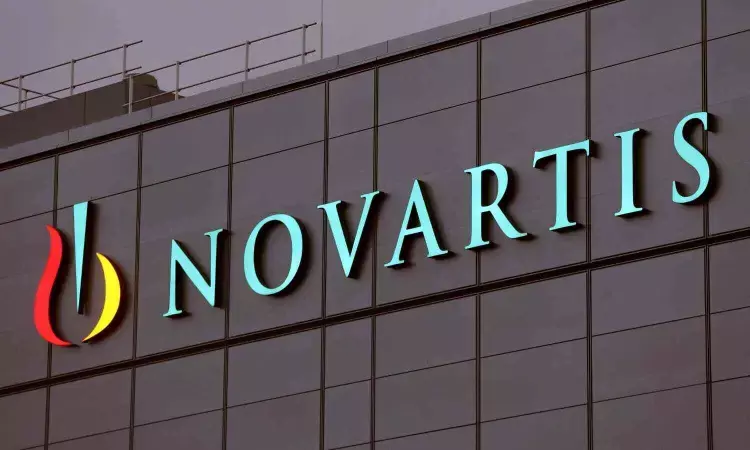- Home
- Medical news & Guidelines
- Anesthesiology
- Cardiology and CTVS
- Critical Care
- Dentistry
- Dermatology
- Diabetes and Endocrinology
- ENT
- Gastroenterology
- Medicine
- Nephrology
- Neurology
- Obstretics-Gynaecology
- Oncology
- Ophthalmology
- Orthopaedics
- Pediatrics-Neonatology
- Psychiatry
- Pulmonology
- Radiology
- Surgery
- Urology
- Laboratory Medicine
- Diet
- Nursing
- Paramedical
- Physiotherapy
- Health news
- Fact Check
- Bone Health Fact Check
- Brain Health Fact Check
- Cancer Related Fact Check
- Child Care Fact Check
- Dental and oral health fact check
- Diabetes and metabolic health fact check
- Diet and Nutrition Fact Check
- Eye and ENT Care Fact Check
- Fitness fact check
- Gut health fact check
- Heart health fact check
- Kidney health fact check
- Medical education fact check
- Men's health fact check
- Respiratory fact check
- Skin and hair care fact check
- Vaccine and Immunization fact check
- Women's health fact check
- AYUSH
- State News
- Andaman and Nicobar Islands
- Andhra Pradesh
- Arunachal Pradesh
- Assam
- Bihar
- Chandigarh
- Chattisgarh
- Dadra and Nagar Haveli
- Daman and Diu
- Delhi
- Goa
- Gujarat
- Haryana
- Himachal Pradesh
- Jammu & Kashmir
- Jharkhand
- Karnataka
- Kerala
- Ladakh
- Lakshadweep
- Madhya Pradesh
- Maharashtra
- Manipur
- Meghalaya
- Mizoram
- Nagaland
- Odisha
- Puducherry
- Punjab
- Rajasthan
- Sikkim
- Tamil Nadu
- Telangana
- Tripura
- Uttar Pradesh
- Uttrakhand
- West Bengal
- Medical Education
- Industry
Novartis Kisqali gets European Commission nod in patients with HR+/HER2-early breast cancer at high risk of recurrence

Basel: Novartis has announced that the European Commission (EC) has approved Kisqali (ribociclib) in combination with an aromatase inhibitor (AI) for the adjuvant treatment of patients with hormone receptor (HR)-positive, human epidermal growth factor receptor 2 (HER2)-negative early breast cancer (EBC) at high risk of recurrence.
The approval is based on results from the pivotal Phase III NATALEE trial, which included a broad patient population with HR+/HER2- stage II and III EBC, including those with node-negative disease. The trial showed a significant and clinically meaningful 25.1% (HR=0.749; 95% CI: 0.628, 0.892; P=0.0006) reduction in risk of disease recurrence with adjuvant Kisqali plus endocrine therapy (ET) compared to ET alone. The invasive disease-free survival (iDFS) benefit was consistently observed across all patient subgroups.
“For many patients diagnosed with stage II or III HR+/HER2- early breast cancer, the risk of their cancer coming back despite treatment with endocrine therapy remains high, even after decades,” said Michael Gnant, M.D., FACS, FEBS, Professor of Surgery at the Medical University of Vienna, Austria, and President of the Austrian Breast and Colorectal Study Group. “This approval represents a positive milestone for the early breast cancer community in Europe, including physicians who now have a new option to help reduce the risk of recurrence in a broader population of patients.”
In addition, Michael Untch, M.D., Professor and Head of the Clinic for Gynecology and Obstetrics, and Director of the Interdisciplinary Breast Cancer Center at Helios Klinikum Berlin-Buch, noted“, Adding a new treatment option to the HR+/HER2- early breast cancer armamentarium is encouraging news for both physicians and their patients – including patients with node-negative disease and additional risk factors. Ribociclib may now help many patients who are at risk of their cancer returning.”
Breast cancer is the most commonly diagnosed cancer in Europe, with approximately 70% of cases diagnosed in the early stages of the disease. Despite current treatment options, people with stage II and III HR+/HER2- EBC remain at risk of experiencing a return of their cancer in the long term, often as incurable advanced disease.
"Breast cancer recurrence can be a lifelong concern for those living with the disease. Patients deserve access to treatment options that help minimize the risk of their cancer coming back and put their mind at ease,” said Iris Zemzoum, M.D., President, Europe, Novartis. “We are proud of this approval, which will help to address a key unmet need and improve health outcomes for a broader population of patients in Europe.”
This news follows the recent U.S. Food and Drug Administration (FDA) approval of Kisqali for EBC patients and recommendation as a Category 1 preferred breast cancer adjuvant treatment by the National Comprehensive Cancer Network Clinical Practice Guidelines in Oncology (NCCN Guidelines®*). Kisqali has also achieved the highest score (A) on the European Society for Medical Oncology-Magnitude of Clinical Benefit Scale (ESMO-MCBS) for EBC12.
Regulatory review of Kisqali in EBC is ongoing worldwide. Following recent data announcements at ESMO 20246, Novartis will continue to evaluate NATALEE patients for longer-term outcomes, including overall survival.
Ruchika Sharma joined Medical Dialogue as an Correspondent for the Business Section in 2019. She covers all the updates in the Pharmaceutical field, Policy, Insurance, Business Healthcare, Medical News, Health News, Pharma News, Healthcare and Investment. She has completed her B.Com from Delhi University and then pursued postgraduation in M.Com. She can be contacted at editorial@medicaldialogues.in Contact no. 011-43720751
Dr Kamal Kant Kohli-MBBS, DTCD- a chest specialist with more than 30 years of practice and a flair for writing clinical articles, Dr Kamal Kant Kohli joined Medical Dialogues as a Chief Editor of Medical News. Besides writing articles, as an editor, he proofreads and verifies all the medical content published on Medical Dialogues including those coming from journals, studies,medical conferences,guidelines etc. Email: drkohli@medicaldialogues.in. Contact no. 011-43720751


